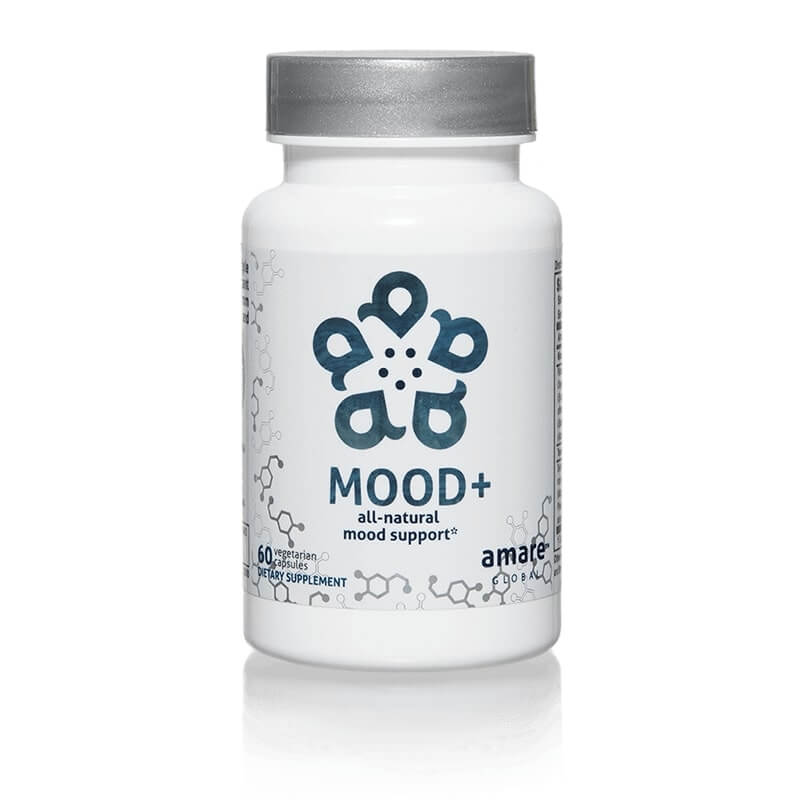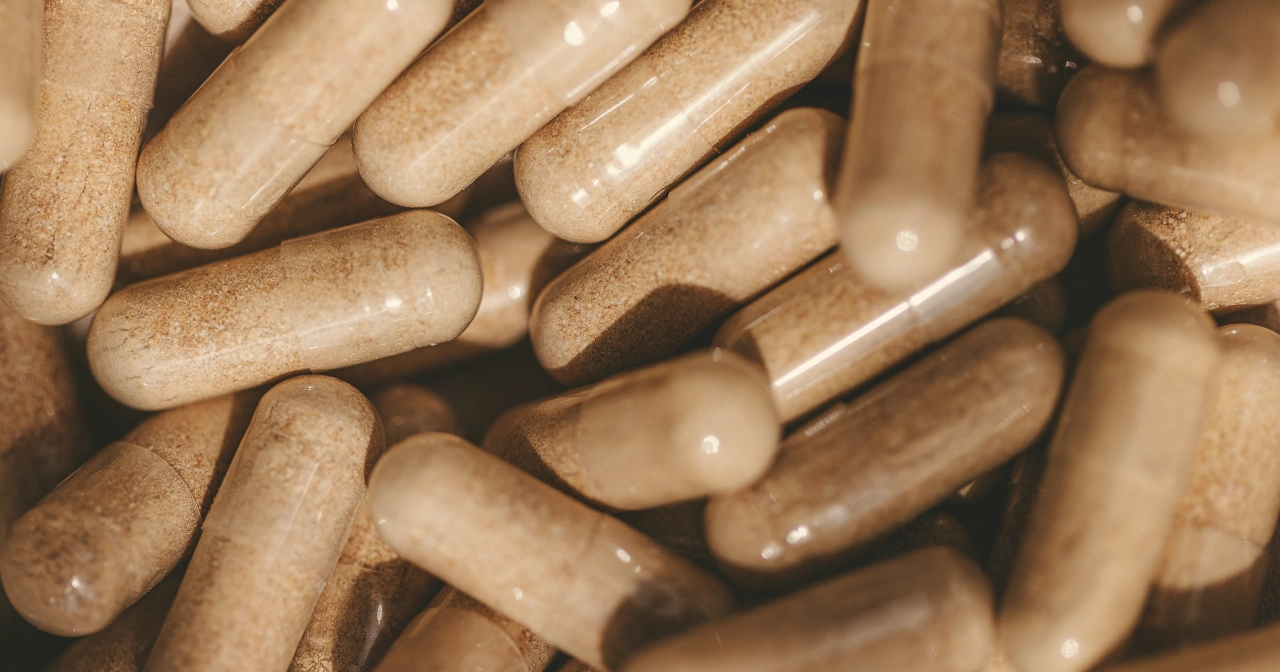Ashwagandha is one of the most popular adaptogens available, and is well known for it’s effects on lowering feelings of anxiety. But can ashwagandha cause anxiety?
This ancient medicinal herb, scientifically known as Withania somnifera, has been used for centuries in Ayurvedic medicine, primarily for its stress-relieving properties. Because it’s used so often, and is a part of so many supplement formulas, it’s inevitable that a small percentage of people will react in the opposite way they’d expect when taking it as part of a formula. They might take an ashwagandha-containing and feel more anxious. But is it the ashwagandha, or is it something else?
Let’s explore this question together.

Try Mood+
Mood+ is an advanced, all-natural mood support product that addresses anxiousness, sadness, and restlessness. It includes Sensoril® Ashwagandha, Kanna, Rafuma, and Relora®. Key ingredients in the formula have been clinically shown to:
- Decrease feelings of anger by 42%
- Decrease feelings of sadness by 20%
- Reduce stress-related symptoms by 70%
Ashwagandha and Anxiety: The Basics
Ashwagandha is a plant native to India and North Africa. It’s often referred to as “Indian ginseng” due to its rejuvenating properties. The root of the ashwagandha plant is used in various forms, including powders, capsules, and teas, for its potential health benefits.
One of the most well-known benefits of ashwagandha is its potential to reduce anxiety. Several studies have shown that ashwagandha can significantly decrease symptoms of stress and anxiety.
For instance, a study published in the Indian Journal of Psychological Medicine found that participants who took ashwagandha had significantly lower scores on stress-assessment scales compared to those who took a placebo.1Chandrasekhar, K., Kapoor, J., & Anishetty, S. (2012). A prospective, randomized double-blind, placebo-controlled study of safety and efficacy of a high-concentration full-spectrum extract of ashwagandha root in reducing stress and anxiety in adults. Indian Journal of Psychological Medicine, 34(3), 255–262. https://doi.org/10.4103/0253-7176.106022
Can Ashwagandha Cause Anxiety?
While ashwagandha is generally considered safe for most people, it’s important to note that everyone’s body reacts differently to supplements. Some people may experience side effects such as upset stomach, diarrhea, or allergic reactions. But can it cause anxiety?
The research on this is limited. Most studies have found that ashwagandha reduces anxiety rather than causing it. However, it’s possible that some people may have an opposite reaction to the supplement. This could be due to individual differences in body chemistry, the dosage taken, or the quality of the ashwagandha supplement.
The Anxiolytic Benefits of Ashwagandha
Ashwagandha, scientifically known as Withania somnifera, is a plant native to India and North Africa that has been used for centuries in Ayurvedic medicine for its potential health benefits, including its anxiolytic or anxiety-reducing effects.
The mechanisms through which ashwagandha exerts these effects are multifaceted and involve several physiological systems.
One of the primary ways ashwagandha may reduce anxiety is through its impact on the hypothalamic-pituitary-adrenal (HPA) axis, a complex set of interactions among three endocrine glands in the body. The HPA axis plays a crucial role in the body’s response to stress.
When a stressor is encountered, the HPA axis is activated, leading to the release of cortisol, often referred to as the “stress hormone.” Chronic activation of the HPA axis and elevated cortisol levels can lead to anxiety and other stress-related disorders.
Ashwagandha has been shown to attenuate the activity of the HPA axis, thereby reducing cortisol levels and potentially alleviating anxiety symptoms.2Lopresti AL, Smith SJ, Malvi H, Kodgule R. An investigation into the stress-relieving and pharmacological actions of an ashwagandha (Withania somnifera) extract: A randomized, double-blind, placebo-controlled study. Medicine (Baltimore). 2019 Sep;98(37):e17186. doi: 10.1097/MD.0000000000017186. PMID: 31517876; PMCID: PMC6750292.
Ashwagandha is rich in phytochemicals, including steroidal lactones known as withanolides, which are believed to be responsible for many of its proposed effects. However, evidence from preclinical studies suggests that other, non-withanolide components may also be involved in its anxiolytic effects.3NIH. Ashwagandha: Is it helpful for stress, anxiety, or sleep? Retrieved Jan 30 2024. https://ods.od.nih.gov/factsheets/Ashwagandha-HealthProfessional/
In addition to its modulatory activity on the HPA axis, ashwagandha may also exert its anxiolytic effects through the GABAergic and serotonergic systems, which are involved in mood regulation and the body’s response to stress.4Speers AB, Cabey KA, Soumyanath A, Wright KM. Effects of Withania somnifera (Ashwagandha) on Stress and the Stress- Related Neuropsychiatric Disorders Anxiety, Depression, and Insomnia. Curr Neuropharmacol. 2021;19(9):1468-1495. doi: 10.2174/1570159X19666210712151556. PMID: 34254920; PMCID: PMC8762185.
Clinical trials have shown that ashwagandha supplementation can lead to significant reductions in anxiety levels. For example, a randomized, double-blind, placebo-controlled study found that anxiety levels reduced by 41% in participants taking ashwagandha, compared to a 24% reduction in participants taking a placebo.5Lopresti AL, Smith SJ, Malvi H, Kodgule R. An investigation into the stress-relieving and pharmacological actions of an ashwagandha (Withania somnifera) extract: A randomized, double-blind, placebo-controlled study. Medicine (Baltimore). 2019 Sep;98(37):e17186. doi: 10.1097/MD.0000000000017186. PMID: 31517876; PMCID: PMC6750292.
Another study found that ashwagandha supplementation led to improvements in sleep quality, which can be adversely affected by anxiety.6Salve J, Pate S, Debnath K, Langade D. Adaptogenic and Anxiolytic Effects of Ashwagandha Root Extract in Healthy Adults: A Double-blind, Randomized, Placebo-controlled Clinical Study. Cureus. 2019 Dec 25;11(12):e6466. doi: 10.7759/cureus.6466. PMID: 32021735; PMCID: PMC6979308.
It’s important to note that while the anxiolytic effects of ashwagandha are promising, more research is needed, particularly in diverse populations and with more comprehensive physiological and psychological evaluations. As with any supplement, it’s also recommended to consult with a healthcare provider before starting ashwagandha, especially for individuals with certain health conditions or those who are pregnant.7Cleveland Clinic. Benefits of Ashwagandha and How Much to Take. Retrieved Jan 30 2024. https://health.clevelandclinic.org/what-is-ashwagandha
Conclusion
While it’s possible for people to have an opposite reaction to most supplements, most of the research shows that ashwagandha can reduce anxiety rather than cause it. However, it’s always important to consult with a healthcare provider before starting any new supplement regimen, especially if you have a medical condition or are taking other medications.
Remember, supplements like ashwagandha are not a substitute for professional medical advice or treatment for specific medical conditions. Always seek the advice of your healthcare provider with any questions you may have regarding a medical condition.
To summarize, while ashwagandha is generally considered safe and beneficial for reducing anxiety, individual reactions can vary. As with any supplement, it’s important to use it responsibly and under the guidance of a healthcare provider.



